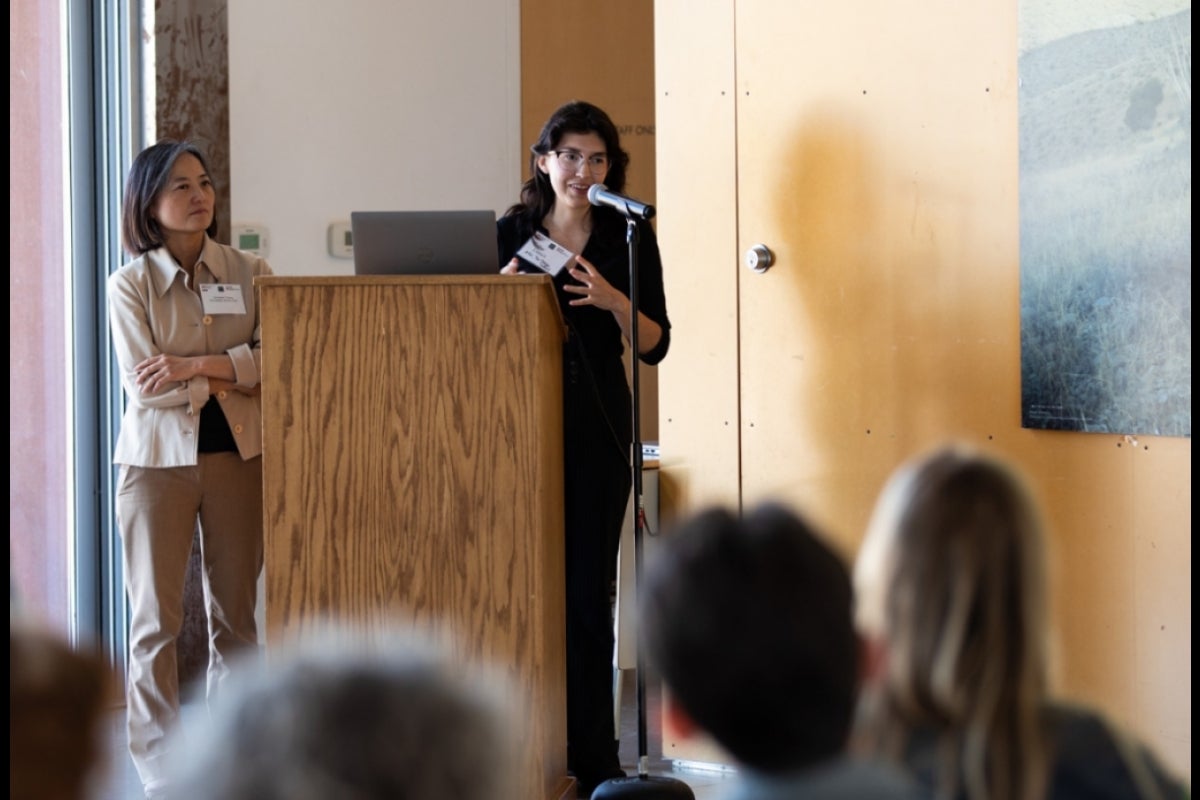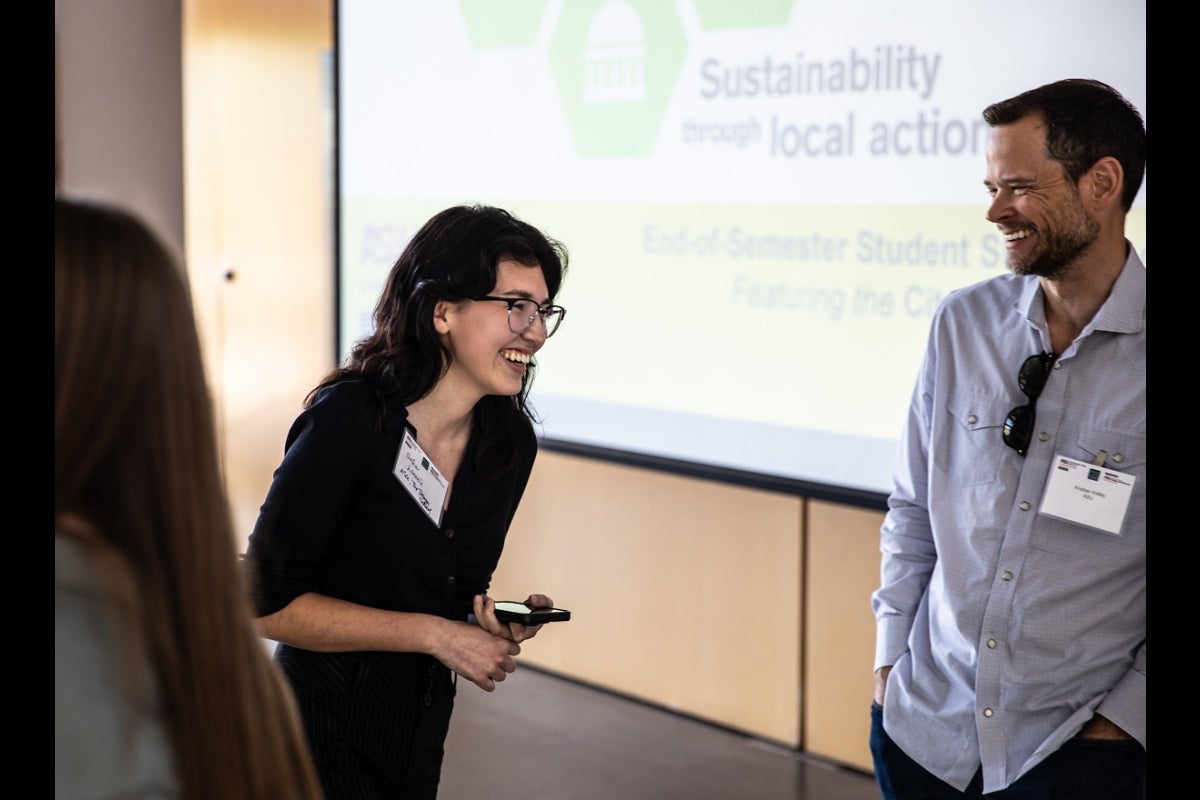Landscape architecture student creates xeriscape designs for city of Phoenix

Living in the desert can sometimes mean overusing water for landscaping and lawns, especially for those who are unfamiliar with local vegetation and native species.
Sofia Lomeli, an Arizona State University landscape architecture student, showed Phoenix city officials and residents how to incorporate native plants in landscaping to reduce water usage, during the Project Cities Phoenix Residential Xeriscape Design Student Showcase on April 21 at the Nina Mason Pulliam Rio Salado Audubon Center.
The event was co-hosted by ASU’s Project Cities, a program connecting ASU research with the local community. It showcased Lomeli’s residential xeriscape designs, which she created in collaboration with the city of Phoenix Water Services Department and as a part of her honors independent study course with Chingwen Cheng, program head and associate professor of landscape architecture, urban design and environmental design at The Design School in the Herberger Institute for Design and the Arts.
Lomeli’s project includes three possible designs based on the average size of a small, medium or large plot in Phoenix. Her plans incorporate a guide for how residents can transition to native and drought-tolerant landscaping. The city will distribute her plans to Phoenix residents free of charge.
“I designed a project to offer alternatives to grass for local residents of Phoenix, kind of as a way to educate them about a better alternative that saves water and a bit of money,” she said.
As a Cottonwood native, Lomeli knows that water usage and distribution is cruicial in Arizona.
“Growing up in Arizona, I always knew the importance of water and knew how valuable it was. It's just something that I've always been really interested in learning more about, so when I had an opportunity to educate the public on realistic ways that they can help do their part, I was super on board with the whole project," she said.
Associate Professor Cheng, whose background includes award-winning work in climate justice design, also teaches her students to think more broadly about the impact of landscape architecture to address issues like heat, flood and inequitable green infrastructure.
“Design plans are only one small aspect of landscape architecture,” Cheng said. “In the bigger picture, we want to design a more sustainable, resilient landscape with the community together. Water conservation is also connected to food and energy security, too, because we need energy to produce power and we need energy to produce food as well. It’s really interconnected in the systems and this is really how our profession has been really looking into that integration.”
But, big change can start small.
“I hope people can realize the value of native plants, but also (that) each person, each household, each lot, and each site can make a difference. Start with your own lot ... and just replace one plant, one yard at a time,” Cheng said.
Lomeli has also been awarded a $5,000 scholarship by the Landscape Architecture Foundation and will participate in an internship at LandDesign, a North Carolina-based landscape architecture firm, this summer.
“What I want (people) to take away is to know that native plants are out there and ... they're beautiful and they have more uses than you'd think. Also, you don't need a ton of money or a licensed landscape architect to design your whole yard to make xeriscaped land a reality,” Lomeli said.
Top photo: Sofia Lomeli presents her xeriscape plans to the community on April 21 at the Nina Mason Pulliam Rio Salado Audubon Center. Photo by Ken Fagan/ASU News.
More Environment and sustainability

From environmental storytelling to hydroponics, student cohort crafts solutions for a better future
A select group of students from Arizona State University's College of Global Futures, a unit within the Julie Ann Wrigley Global Futures Laboratory, is laying the foundation to drive change…

2 ASU faculty elected as AAAS Fellows
Two outstanding Arizona State University faculty spanning the physical sciences, psychological sciences and science policy have been named Fellows of the American Association for the Advancement of…

Homes for songbirds: Protecting Lucy’s warblers in the urban desert
Each spring, tiny Lucy’s warblers, with their soft gray plumage and rusty crown, return to the Arizona desert, flitting through the mesquite branches in search of safe places to nest.But as urban…




